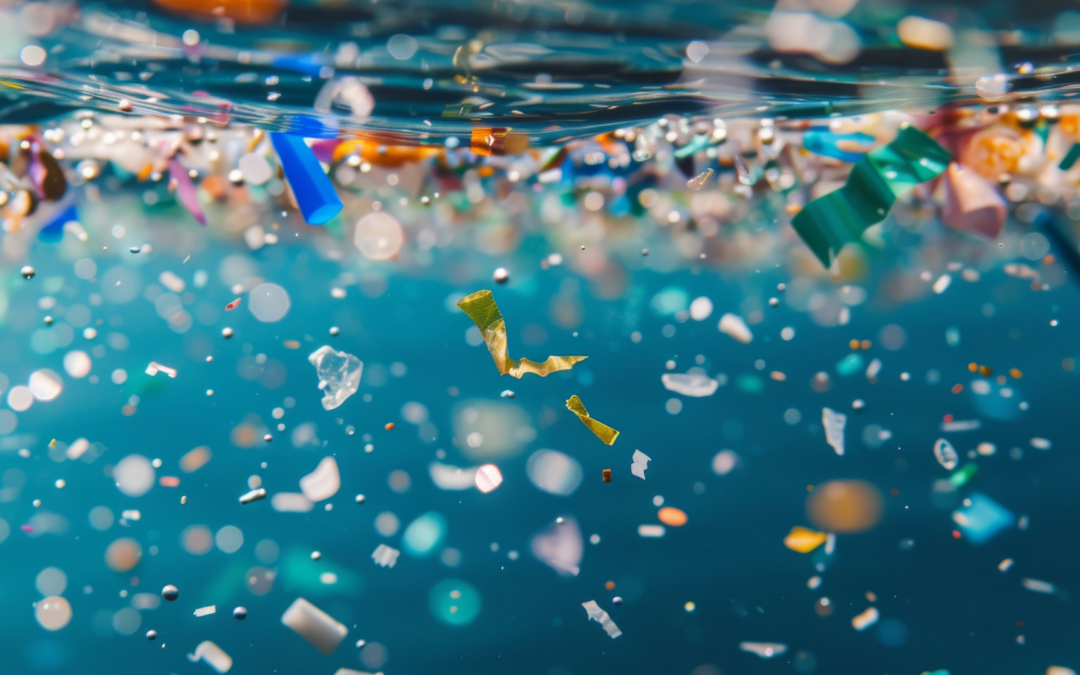Plastic pollution in our oceans has reached a critical point, and it’s affecting marine life, ecosystems, and even human health. Oceans of Plastic Awareness Day is here to remind us of the growing plastic crisis and the urgent need to protect our seas. In this blog, we’ll explore why this day matters, the impact of plastic on the oceans, and what we can all do to make a change.
What’s Oceans of Plastic Awareness Day All About?
Oceans of Plastic Awareness Day is dedicated to raising awareness about the devastating effects of plastic pollution on our oceans. With billions of pounds of plastic entering our seas each year, this day encourages us to reflect on the consequences and take meaningful steps toward a cleaner planet.
Our oceans, covering over 70% of Earth’s surface, are essential to life on this planet. They regulate climate, provide food, and are home to countless species. But, they’re also choking on plastic. From massive islands of floating garbage to microplastics embedded in marine creatures, the signs of plastic pollution are everywhere.
So, why should you care? Because plastic pollution doesn’t stay in the ocean; it comes back to haunt us in our food, water, and ecosystems. Let’s dive deeper.
The Alarming Facts About Ocean Plastic Pollution
Plastic pollution is one of the most pressing environmental issues today. Here are some shocking facts to help illustrate the gravity of the problem:
More Plastic Than Fish by 2050: According to a report by the Ellen MacArthur Foundation, if we don’t change our habits, there will be more plastic than fish in the ocean by 2050.
One Garbage Truck Every Minute: Currently, the equivalent of a garbage truck full of plastic waste is dumped into the ocean every single minute. This amounts to over 8 million metric tons of plastic per year.
Microplastics Everywhere: Plastic never really disappears; it just breaks down into smaller particles called microplastics. These microplastics are now found in everything from sea salt to seafood, and even in human blood and lungs.
Marine Life at Risk: Over 1 million marine animals, including mammals, fish, sharks, and sea birds, die each year due to plastic pollution. Many of them ingest or get entangled in plastic debris.
Human Health Impact: When marine creatures consume plastic, it enters the food chain, eventually reaching us. Studies have shown that ingesting microplastics can harm our health, potentially leading to toxic build-up in our bodies.
The Types of Ocean Plastics and Their Impact
Plastic pollution isn’t just about grocery bags and straws; it comes in many forms, each with its own environmental impact. Here’s a look at the main types of plastics polluting our oceans:
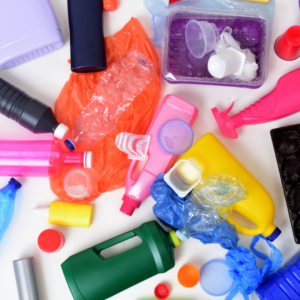
Macroplastics

These are large, visible pieces of plastic like bottles, bags, and containers. They can entangle marine life, cause injuries, and are often mistaken as food by animals.
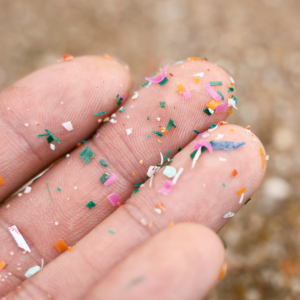
Microplastics
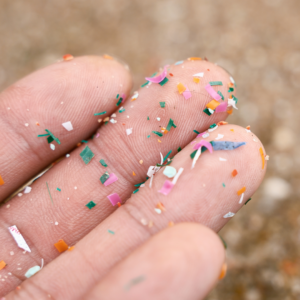
Tiny plastic particles (less than 5mm) that come from broken-down larger plastics or microbeads in products like toothpaste and cosmetics. These are ingested by marine life and eventually enter the human food chain.
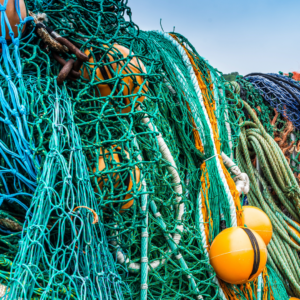
Fishing Gear

Discarded fishing nets, lines, and traps (often called “ghost gear”) are among the most deadly ocean plastics. They trap and kill countless marine creatures and can persist in the ocean for hundreds of years.
How Plastic Pollution Affects Marine Life
Plastic pollution doesn’t just make the ocean look dirty—it’s a real threat to marine ecosystems. Marine animals often mistake plastic for food. Sea turtles, for instance, confuse plastic bags with jellyfish, their favourite snack. Once ingested, plastic can cause internal injuries, starvation, and even death.
Moreover, “ghost gear” like abandoned fishing nets continue to trap and kill fish, dolphins, and other creatures long after they’ve been discarded. This silent menace floats beneath the surface, unseen by most, but deadly to the animals it ensnares.
Even coral reefs, known as the “rainforests of the sea,” suffer from plastic pollution. When plastic debris lands on coral reefs, it can block sunlight, smother coral, and introduce pathogens that cause coral disease.
Why Should We Care? The Ripple Effect of Ocean Plastic on Humans
You might wonder, “Why should I care about plastic in the ocean if I don’t live near one?” Well, plastic pollution has a ripple effect that reaches far beyond the coastline. Here’s how it impacts us all:
- Food Contamination: Seafood lovers beware! When fish and other sea creatures ingest microplastics, those toxins work their way up the food chain—right onto our plates.
- Water Quality: Plastic waste releases toxic chemicals into the water, harming both marine life and the quality of the water itself. These pollutants can spread to freshwater sources, affecting our drinking water.
- Climate Change: Plastic is derived from fossil fuels, and producing it releases greenhouse gases. Reducing plastic use not only cleans our oceans but also helps mitigate climate change.
What Can You Do on Oceans of Plastic Awareness Day?
The fight against ocean plastic pollution starts with us. Here are some impactful ways you can get involved on Oceans of Plastic Awareness Day:
Reduce Single-Use Plastics
Say no to plastic straws, bags, and bottles. Instead, opt for reusable options.
Participate in Beach Cleanups
Join or organize a local beach or river cleanup. Removing plastic waste from shorelines prevents it from reaching the ocean.
Support Sustainable Brands
Many companies are now producing plastic-free or alternatives to single-use plastic products. Support these brands to encourage more businesses to go eco-friendly.
Advocate for Change
Spread awareness about ocean plastic pollution. Share articles, talk about the issue, and encourage others to take action.
Donate to Environmental Organisations
Support groups that are fighting to reduce plastic waste in oceans, like Sustainable Coastlines, Sea Cleaners, or The Ocean Cleanup.
Educate Yourself and Others
Knowledge is power. Educate yourself on the impact of plastic pollution, and then spread the word. Awareness is the first step toward change.
Looking Forward: A World Without Ocean Plastic
Imagine a world where our oceans are free from plastic. Marine animals can live without the threat of entanglement or ingestion of harmful debris. Beaches are pristine, and we can eat seafood without worrying about ingesting microplastics. This vision isn’t impossible—it just requires all of us to act.
Oceans of Plastic Awareness Day serves as a reminder that we’re not powerless. It isn’t just a date on the calendar; it’s a call to action. Our planet’s future, and that of countless species, depends on our actions today. By making conscious choices, supporting initiatives, and spreading the word, we can help turn the tide on plastic pollution. Every small step we take, whether it’s refusing a plastic straw or participating in a beach cleanup, helps pave the way for a cleaner, healthier planet.
Till next time
Hi-Tech Packaging Team
Got questions?
Need advice on the safety of your packaging? Feel free to reach out—we have a great range of recycled plastic and plastic alternative options.

